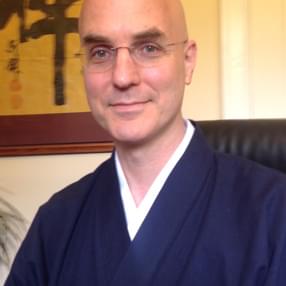
Mark Pechovnik
Licensed Clinical Social Worker
As both a psychotherapist and a Zen priest, I work closely with individual and couples to help normalize their experiences while also helping them to move beyond barriers behind which they feel stuck, creating a more spacious, confident and authentic life.
Client Status
Contact
503-853-3532
2030 NE 47th Ave.
Portland, OR 97213
At a Glance
Me
Provides telehealth services
Practicing Since: 2005
Languages: English
Services
- Relationship
- Individual
Insurances Accepted
- Out of Pocket
- Out of Network
Techniques I Use
Specialties
-
Couples Counseling
There is an emphasis on clear, empathic communication (NVC); sexuality and differentiation (Schnarch's Work); relationship building tools (Gottman and others); sexuality; acceptance; attachment; and emotional attunement (Emotion Focused Therapy).
-
Relational
Fundamental to our work together is the fact that there are two people in a room discussing very personal and intimate information. The reality of the relationship we develop is both acknowledged and worked with not only as natural outcome of the work we do but as a tool to help increase tolerance for intimacy, authenticity and self-confidence.
-
Mindfulness-based
Mindfulness arises in the session naturally as we spend an hour looking deeply at what is happening here and now (even if it's thoughts and feelings about the past). In addition to cultivating mindfulness in session, we can also develop meditation skills (though meditation is helpful, it is not required).
- Acceptance and Commitment Therapy (ACT)
- Addiction Therapy
- Anger Management Therapy
- Attachment Theory
- Cognitive Behavioral (CBT)
- Contemplative
- Couples Counseling
- Dialectical Behavior Therapy (DBT)
- Depth Therapy
- Eclectic
- EMDR
- Emotionally Focused
- Existential
- Experiential
- Family Systems
- Feminist
- Gestalt
- Gottman Method
- Hakomi
- Holistic
- Humanistic
- Hypnotherapy
- Imago Relationship Therapy
- Interpersonal
- Mindfulness-based
- Motivational Interviewing
- Narrative
- Nonviolent Communication
- Premarital Counseling
- Psychodynamic
- Relational
- Somatic Therapy (Body Centered)
- Solution Focused Brief Therapy
Issues I Treat
Specialties
- Personal Growth
- Spirituality
- Alcohol Abuse and Alcohol Dependence
- Relationship / Marriage Issues
- PTSD
-
Personal Growth
In the end, all therapy focuses on personal growth. Very often our complaints stem from some fundamental unwillingness to grow. Childhood wounding leaves us hoping for a parental figure (or lover) to fill a void in our lives. The maturity that comes from looking at and facing our lives and the disappointments in our lives and taking responsibility for moving forward is a life-long process.
-
Spirituality
Spirituality is often the component most often neglected in our modern lives. Though it can have many expressions , its absence of expression can often be the root of our own disquiet and dissatisfaction. Spiritual work is hard work, and we will often avoid to engage in more immediately gratifying activities. Therapy can help create your own spiritual identify and clear away blocks to practice.
-
Alcohol Abuse and Alcohol Dependence
Weekly therapy can be a great addition to personal recovery work. I have great respect for and advocate for 12-Step programs. Outside of community support, individual therapy is a boon to working through the inevitable mental health issues that helped cause and were created by addictive behaviors.
-
Relationship / Marriage Issues
Relationship problems often stem from unrealistic expectations about what our partners are meant to do for us. Therapy helps transform expectation into appreciation. In the end, our romantic relationships can be wonderful and deeply intimate friendships of mutual support and care.
-
PTSD
Trauma are experiences that either actively and vividly haunt us or go underground and reveal themselves only through behaviors that limit our full engagement in life. I utilize various techniques (including EMDR) to help uncover and work with the trauma so that it becomes less a defining factor and more an historical artifact.
- Adjustment Disorder
- Anger Management
- Anxiety
- Codependency
- Depression
- Divorce
- Drug Dependence / Abuse / Addiction
- Family Conflict
- Gambling Addiction
- Internet Addiction
- Loss or Grief
- Men's Issues
- OCD
- Panic
- Personal Growth
- Premarital Counseling
- PTSD
- Relationship / Marriage Issues
- Self-Esteem
- Self-Harming
- Sexual Abuse
- Sexual Addiction
- Sexual Problems
- Social Phobia
- Spirituality
- Suicidal Ideation
- LGBTQ Issues
- Insomnia
- Dissociative Disorder (DD)
- Alcohol Abuse and Alcohol Dependence
-
Mark Pechovnik has not posted any group sessions.
-
Mark Pechovnik has not published any articles.

